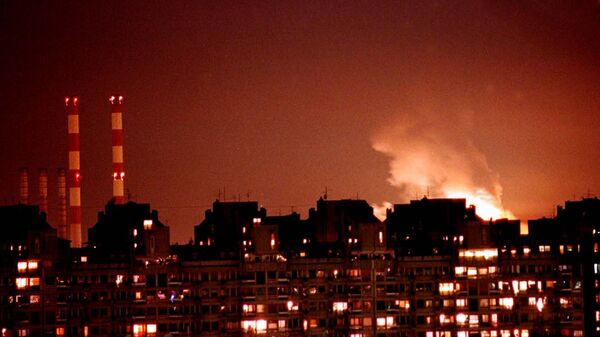Serbian President Aleksandar Vucic has slammed NATO's bombing campaign against then-Yugoslavia using munitions containing depleted uranium during the opening ceremony of the new Oncological Institute. According to him, Serbian doctors determined that such ordnances have severely affected the health of the country's young population.
"Today in the Oncological Institute I learned that more and more children are diagnosed with cancer in our country. I'll be honest, at first I didn't believe in the depleted uranium theories […] but today, after speaking with doctors, I realized that depleted uranium is among many of the factors that cause cancer during a young age," Vucic said.
He also noted that juvenile cancer is mostly diagnosed among children whose parents were born around 1990. He stated that Serbia will investigate the issue further.
"This is an unprecedented crime and we, as a country, will be dealing with this very seriously," the president said.
Earlier, Serbian scientist Ljubisa Rakic said that the quantity of depleted uranium that was dropped on the Balkan states during NATO operations would be enough to create 170 Hiroshima bombs. Among the most wide-spread consequences of the use of such weapons are thyroid disorders, cancer and fetus mutations.
READ MORE: "Victims" of Tribunal for Former Yugoslavia: Suicides, Cancer and Conspiracies
In 1999, NATO forces were conducting Operation Allied Force on the territory of the then Yugoslavia under the pretext of stopping the killing of the Albanian population in Kosovo. According to NATO data, some 38,000 flights were conducted, 10,000 of which were used for airstrikes. Serbia says that from 3,500 to 4,000 people died and 10,000 were wounded as a result of the NATO bombings. They state that 2/3 of them were civilians. Several oil refineries were also destroyed or severely damaged as a result of NATO's bombings, which led to the environmental contamination of rivers and water systems.


